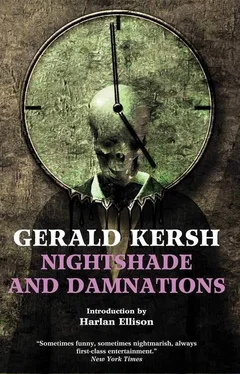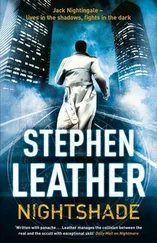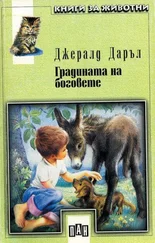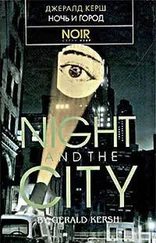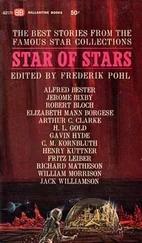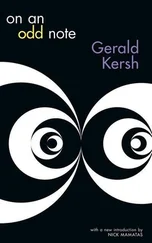Джералд Керш - Nightshade and Damnations
Здесь есть возможность читать онлайн «Джералд Керш - Nightshade and Damnations» весь текст электронной книги совершенно бесплатно (целиком полную версию без сокращений). В некоторых случаях можно слушать аудио, скачать через торрент в формате fb2 и присутствует краткое содержание. Город: Richmond, Год выпуска: 2013, Издательство: Valancourt Books, Жанр: Фантастика и фэнтези, на английском языке. Описание произведения, (предисловие) а так же отзывы посетителей доступны на портале библиотеки ЛибКат.
- Название:Nightshade and Damnations
- Автор:
- Издательство:Valancourt Books
- Жанр:
- Год:2013
- Город:Richmond
- ISBN:нет данных
- Рейтинг книги:3 / 5. Голосов: 1
-
Избранное:Добавить в избранное
- Отзывы:
-
Ваша оценка:
- 60
- 1
- 2
- 3
- 4
- 5
Nightshade and Damnations: краткое содержание, описание и аннотация
Предлагаем к чтению аннотацию, описание, краткое содержание или предисловие (зависит от того, что написал сам автор книги «Nightshade and Damnations»). Если вы не нашли необходимую информацию о книге — напишите в комментариях, мы постараемся отыскать её.
Nightshade and Damnations — читать онлайн бесплатно полную книгу (весь текст) целиком
Ниже представлен текст книги, разбитый по страницам. Система сохранения места последней прочитанной страницы, позволяет с удобством читать онлайн бесплатно книгу «Nightshade and Damnations», без необходимости каждый раз заново искать на чём Вы остановились. Поставьте закладку, и сможете в любой момент перейти на страницу, на которой закончили чтение.
Интервал:
Закладка:
For the sake of appearances I had taken out a notebook and pencil. The corporal said: “My name isn’t really Cuckoo. It’s a French name, originally— Le Cocu . You know what that means, don’t you?”
Somewhat embarrassed, I replied: “Well, if I remember rightly, a man who is cocu is a man whose wife has been unfaithful to him.”
“That’s right.”
“Have you any family?”
“No.”
“But you have been married?” I asked.
“Plenty.”
“What do you intend to do when you get back to the States, Corporal Cuckoo?”
He said: “Grow flowers, and keep bees and chickens.”
“All alone?”
“That’s right,” said Corporal Cuckoo.
“Flowers, bees and chickens! . . . What kind of flowers?” I asked.
“Roses,” he said, without hesitation. Then he added: “Maybe a little later on I’ll go south.”
“What on earth for?” I asked.
“Turpentine.”
Corporal Cuckoo, I thought, must be insane. Thinking of this, it occurred to me that his brain might have been deranged by the wound that had left that awful scar on his head. I said: “They seem to have cut you a bit, Corporal Cuckoo.”
“Yes, sir, a little bit here and there,” he said, chuckling. “Yeahp, I’ve taken plenty in my time.”
“So I should think, Corporal. The first time I saw you I was under the impression that you’d got caught up in some machinery, or something of the sort.”
“What do you mean, machinery?”
“Oh, no offense, Corporal, but those wounds on your head and face and neck haven’t the appearance of wounds such as you might get from any weapon of modern warfare—”
“Who said they were?” said Corporal Cuckoo, roughly. Then he filled his lungs with air, and blew out a great breath which ended in an exclamation: “ Phoo —wow! What was that stuff you gave me to drink?”
“Good Scotch. Why?”
“It’s good alright. I didn’t ought to drink it. I’ve laid off the hard stuff for God knows how many years. It goes to my head. I didn’t ought to touch it.”
“Nobody asked you to empty a twelve-ounce ginger ale bottle full of Scotch in two drinks,” I said resentfully.
“I’m sorry, mister. When we get to New York, I’ll buy you a whole bottle, if you like,” said Corporal Cuckoo, squinting as if his eyes hurt and running his fingers along the awful crevasse of that scar in his head.
I said: “That was a nasty one you got, up there.”
“What? This ?” he said, carelessly striking the scar with the flat of a hard hand. “This? Nasty one? I’ll say it was a nasty one. Why, some of my brains came out. And look here—” He unbuttoned his shirt and pulled up his singlet with his left hand, while he opened and lit a battered Zippo with his right. “Take a look at that.”
I cried out in astonishment. I had never seen a living body so incredibly mauled and mutilated. In the vacillating light of the flame I saw black shadows bobbing and weaving in a sort of blasted wilderness of crags, chasms, canyons, and pits. His torso was like a place laid waste by the wrath of God—burst asunder from below, scorched from above, shattered by thunderbolts, crushed by landslides, ravaged by hurricanes. Most of his ribs, on the left-hand side, must have been smashed into fragments no bigger than the last joint of a finger by some tremendously heavy object. The bones, miraculously, had knit together again, so that there was a circle of hard bony knobs rimming a deep indentation; in that light it reminded me of one of the dead volcanos on the moon. Just under the sternum there was a dark hole, nearly three inches long, about half an inch wide, and hideously deep. I have seen such scars in the big muscles of a man’s thigh—but never in the region of the breastbone. “Good God, man, you must have been torn in two and put together again!” I said. Corporal Cuckoo merely laughed, and held his lighter so that I could see his body from stomach to hips. Between the strong muscles, just under the liver, there was an old scar into which, old and healed as it was, you might have laid three fingers. Cutting across this, another scar, more than half as deep but more than twelve inches long, curved away downwards towards the groin on the left. Another appalling scar came up from somewhere below the buckle of his belt and ended in a deep triangular hole in the region of the diaphragm. And there were other scars—but the lighter went out, and Corporal Cuckoo buttoned up his shirt.
“Is that something?” he asked.
“Is that something!” I cried. “Why, good God, I’m no medical man, but I can see that the least of those wounds you’ve got down there ought to be enough to kill any man. How do you manage to be alive, Cuckoo? How is it possible?”
“You think you’ve seen something? Listen, you’ve seen nothing till you see my back. But never mind about that now.”
“Tell me,” I said, “how the devil did you come by all that? They’re old scars. You couldn’t have got them in this war—”
He slid down the knot of his tie, unbuttoned his collar, pulled his shirt aside, and said, dispassionately: “No. Look—this is all I got this time.” He pointed nonchalantly to his throat. I counted five bullet scars in a cluster, spaced like fingertips of a half-opened hand, at the base of the throat. “Light machine-gun,” he said.
“But this is impossible!” I said, while he readjusted his tie. “That little packet there must have cut one or two big arteries and smashed your spine to smithereens.”
“Sure it did,” said Corporal Cuckoo.
“And how old did you say you were?” I asked.
Corporal Cuckoo replied: “Round about four hundred and thirty-eight.”
“Thirty-eight?”
“I said, four hundred and thirty-eight.”
The man is mad , I thought. “Born 1907?” I asked.
“1507,” said Corporal Cuckoo, fingering the dent in his skull. Then he went on, half-dreamily. How am I to describe his manner? It was repulsively compounded of thick stupidity, low cunning, anxiety, suspicion, and sordid calculation—it made me remember a certain peasant who tried to sell me an American wristwatch near Saint Jacques in 1944. But Corporal Cuckoo talked American, at first leering at me in the dim light, and feeling his shirt as if to assure himself that all his scars were safely buttoned away. He said, slowly: “Look . . . I’ll give you the outline. It’s no use you trying to sell the outline, see? You’re a newspaper man. Though you might know what the whole story would be worth, there’s no use you trying to sell what I’m giving you now, because you haven’t got a hope in hell. But I’ve got to get back to work, see? I want some dough.”
I said: “For roses, chickens, bees, and turpentine?”
He hesitated, and then said: “Well, yes,” and rubbed his head again.
“Does it bother you?” I asked.
“Not if I don’t touch that stuff you gave me,” he replied, dreamily resentful.
“Where did you get that scar?” I asked.
“Battle of Turin,” he said.
“I don’t remember any Battle of Turin, Corporal Cuckoo. When was that?”
“Why, the Battle of Turin. I got this in the Pass of Suze.”
“You were wounded in the Pass of Suze at the Battle of Turin, is that right? When was that?” I asked.
“1536 or 1537. King François sent us up against the Marquess de Guast. The enemy was holding the pass, but we broke through. That was my first smell of gunpowder.”
“You were there of course, Corporal Cuckoo.”
“Sure I was there. But I wasn’t a corporal then, and my name was not Cuckoo. They called me Le Cocu. My real name was Lecoq. I came from Yvetot. I used to work for a man that made linen—Nicholas, the . . .”
Читать дальшеИнтервал:
Закладка:
Похожие книги на «Nightshade and Damnations»
Представляем Вашему вниманию похожие книги на «Nightshade and Damnations» списком для выбора. Мы отобрали схожую по названию и смыслу литературу в надежде предоставить читателям больше вариантов отыскать новые, интересные, ещё непрочитанные произведения.
Обсуждение, отзывы о книге «Nightshade and Damnations» и просто собственные мнения читателей. Оставьте ваши комментарии, напишите, что Вы думаете о произведении, его смысле или главных героях. Укажите что конкретно понравилось, а что нет, и почему Вы так считаете.
